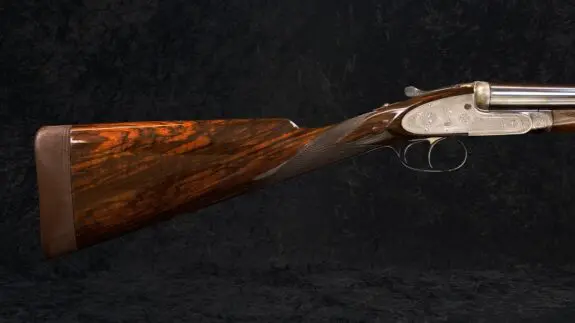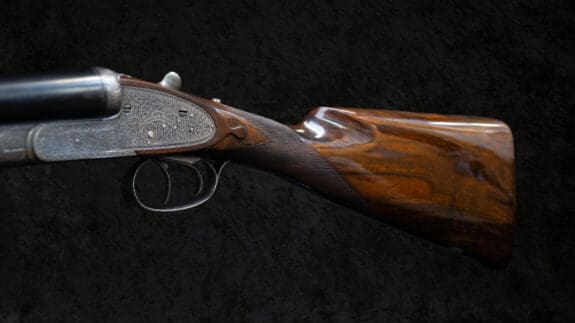Martin Clapson
Managing Director
For individuals with a valid shotgun certificate and shooting experience, investing in a shotgun can be an appealing idea. You may have inherited a gun that now presents an investment opportunity, or perhaps you are looking to upgrade your existing shotgun. Beyond improving your shooting experience, a well-chosen shotgun can hold its value and even appreciate over time.
As part of our Alternative Assets series, this blog explores what makes a good shotgun investment, how the market is shifting, and the tax treatment of buying and selling shotguns.
Please note that this article is intended for those considering investing in shotguns as a hobby. If there is any suggestion that the trading/dealing of guns is being carried out as a business, you will need to obtain a Registered Firearms Dealer (RFD) certificate. In that case, HMRC’s key indicators for determining whether an activity amounts to trading would become relevant, and different tax treatments – such as Income Tax or VAT – may apply.
What draws buyers to investing in shotguns is often the exceptional level of craftsmanship. Skill, time and attention to detail are central to their appeal – particularly in the case of London best guns, where the engraving alone can take over 500 hours. As one investor put it, “You never really own a gun like this, you’re just looking after it for the next person to enjoy.”
The most sought-after investments mainly come from the ‘big three’ London makers:
These London best guns tend to hold value well and are particularly attractive to international buyers, where these makers are harder to find. While early 20th-century guns are especially popular amongst buyers and sellers, newer shotguns from London makers are also of interest amongst investors.
Pairs of matching guns are highly sort after, particularly where the serial numbers are consecutive. Trios and four-gun sets are even rarer and command significant premiums.
First and foremost, always buy firearms from trusted sources, ideally a Registered Firearms Dealer (RFD). If purchasing from a private seller, it should be done face to face and only if you know the person personally.
Regulatory changes, such as the upcoming lead shot ban, are already influencing buying behaviour. Investors are increasingly looking for shotguns that are both high quality and future-proofed, with features like steel-proofing, 32-inch barrels and Teague chokes becoming more sought after.
Condition remains a key factor in value, especially for historical guns – but subtlety matters. The patina, or natural evidence of age, can enhance a gun’s appeal. Over-restoration risks removing the very character collectors look for.
If refinishing or repair work is required, it must be done professionally. When handled with care and expertise, high-quality re-blackening or sympathetic restoration can protect, and even increase, a shotgun’s value.

Photo credit: Adam Bragg Gunstock Services – 1930s Purdey, fully restored with re-chequering, new teardrops, leather extension and refinish.
Normally, shotguns are exempt from CGT as they are classed as a “wasting asset” under UK tax law (i.e., an asset with a predictable life of 50 years or less).
However, a shotgun could potentially become subject to CGT if either of these situations applies:
If a shotgun is highly collectable and its value is not expected to diminish over time – because it is being preserved, displayed, or held as an investment – HMRC could argue that it is not a true “wasting asset.”
For example, a pair of antique Holland & Holland shotguns that are over 100 years old, beautifully maintained, and sold for a major profit would likely see that CGT is applied on the gain when sold.
If capital allowances have been claimed on a shotgun because it was used within a qualifying business, this may affect its status as a “wasting asset” for CGT purposes. In these cases, the gun is more likely to be treated as a business asset for inheritance tax purposes (see below) but this also removes the usual CGT exemption.
If the shotgun is sold as part of a broader valuable collection, and the set is worth more than the normal CGT threshold (£6,000 for chattels), then HMRC might treat it differently. There are special CGT rules for “sets of assets” where the sale proceeds exceed £6,000.
When someone dies, all their assets – including any shotguns they own – form part of their estate for IHT purposes. This means each shotgun must be valued at its market value at the date of death.
For an ordinary modern shotgun used for sporting purposes, the value might be modest e.g. a few hundred or thousand pounds. However, for rare or highly collectable shotguns, valuations can be much higher, significantly increasing the estate’s overall IHT liability.
Recent changes in IHT planning have seen increased focus on alternative assets, as traditional estate reliefs like Agricultural Property Relief (APR) and Business Property Relief (BPR) are already widely used across farms and landed estates. With the right planning, it may be possible to pass down valuable shotguns during one’s lifetime, rather than on death – helping to reduce IHT exposure.
BPR can reduce the value of business assets when calculating Inheritance Tax – in some cases, giving up to 100% relief. However, for a shotgun to qualify for BPR, the ownership and use of the gun must be clearly connected to a qualifying business.
If you are buying from a dealer, VAT will usually be included in the price. Private sales between individuals are normally outside the scope of VAT. If a shotgun is sold to an overseas buyer, for example to the US, dealers can usually apply zero-rated VAT treatment, provided the correct export documentation is retained.
There is strong demand for British shotguns, particularly London makers, in markets such as the US. Exporting guns requires careful compliance with both UK and US law, including export licences, import permits, and dealing with import duties. Professional advice should always be taken before attempting to sell or ship a firearm internationally.

Photo credit: Adam Bragg Gunstock Services – 1898 Holland & Holland, with newly made stock and forend following irreparable damage to the original.
A shotgun can offer far more than enjoyment shooting – with the right approach, it can also be a sound long-term investment. Whether you’re upgrading, inheriting or purchasing for the first time, the key is to buy well, look after the gun properly, and stay mindful of changing regulations and tax considerations.
Owning a shotgun in the UK comes with strict legal responsibilities. You must hold a valid shotgun certificate issued by your local police force, and all shotguns must be securely stored in accordance with Home Office guidance. Safe and responsible gun ownership should always be the priority, and any purchase should be made through a trusted source – ideally an RFD. Buyers and sellers should also be aware of relevant legislation around the sale, transfer, transportation and import/export of shotguns. You can find official guidance on shotgun and firearms licensing on the GOV.UK website, including how to apply, renew or comply with security standards. This article assumes you are already in compliance with legal obligations.
The tax treatment of shotguns depends largely on the investors’ intention at purchase, their value and whether they’ve been used as part of a qualifying business. At Price Bailey, our Agricultural team can provide tailored advice on the CGT and IHT treatments. As with any investment, careful planning and specialist advice are essential to optimise outcomes and avoid pitfalls.
We always recommend that you seek advice from a suitably qualified adviser before taking any action. The information in this article only serves as a guide and no responsibility for loss occasioned by any person acting or refraining from action as a result of this material can be accepted by the authors or the firms mentioned.
Join our community of industry leaders and receive exclusive reports, early event access, and expert advice to stay ahead – all delivered straight to your inbox.
Contact us today to find out more about how we can help you